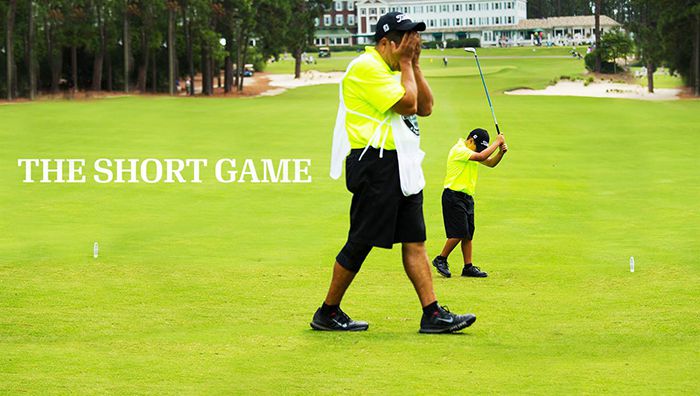This is either going to be an incredible exercise in hubris or a rather nifty journalistic hat trick as I include not only a thought provoking quote from St. Paul, but simultaneously reference Ray Davies of the 1960s rock band The Kinks. And on top of that, I intend to tie them all up into a nice package relating to a new and disturbing genre of reality TV.
In his ode to celebrity worship, Ray Davies wrote, “Everybody’s in movies, everybody’s a star, everybody’s in showbiz. … It doesn’t matter who you are.” What a harbinger of things to come! Now, through the distorted lens of reality television shows, people with no discernible talents are constantly anointed with undeserving fame.
Like a ravenous computer virus traveling the micro-electronic pathways inside a hard drive, devouring whatever it encounters until moving on to another victim, reality TV has turned its insatiable appetite toward children. More specifically, children and their parents.
“The Short Game” and “Friday Night Tykes” on the Esquire Network, and “Kart Life” on TruTV are the new poster children for reality television that border on child abuse. All three programs have sports as their foundations and all three programs have extremely intense parents (usually fathers) either trying to relive past glories of their own or create an alternative success story for themselves through their progeny.
If during my stage of life when I was pitching stories to jaundiced television producers and I “pitched” an overbearing father who makes his child’s life miserable because his offspring is not living up to unrealistic expectations or is somehow a compensation for the dad’s unfulfilled dream, the same producer would stare up at the ceiling tiles of his office and tell me my characterization was too “on the nose” or a brushstroke too broad to be believable.
Only problem with these reality shows is, the stereotypical personification of the hypercompetitive dad screaming at his kid, screaming at other parents and generally making their family’s existence a living hell, is standard operating procedure on these shows.
In Kart Life, which chronicles parents and their children (both boys and girls) during a go-kart racing season, my first impression was, “Where in the world do these people get all this disposable income to travel every weekend around the country with what looks like a rather sophisticated piece of machinery?” Some of these “race teams” are comprised of paid mechanics. And we’re talking about racers who can be as young as 8.
What is not a cause of wonder on my part is the presence of overinvolved fathers in the go-kart racing world. Some of the dads on this show refer to themselves as the “driver” when they are watching their children race around the track. One particular dad instills the caustic bromide into his 12-year-old son that coming in second in a race just makes you “first loser.”
The other reality programming, like the youth football league venue in “Friday Night Tykes” and the next Tiger Woods to be found in “The Short Game,” both on the Esquire network, are filled with similar fathers who are likewise filled to the brim with unrealized dreams of glory. The obvious point of view of these fathers seems to be that if they can’t have their dream, then they are determined to make sure their children have their dream for them — regardless of the costs.
Frankly, the cost is too great. Speaking of Tiger Woods, he is a prime example of someone who was selected by his father to be great. Granted, he possessed an incredible amount of natural talent, but his childhood was about training to be a golf champion and very little else. It did make Tiger Woods a champion without peer, but I’m not so sure his gravitas in the sport translates to other, more important aspects of life.
Fathers need to be fathers — not mechanics, pitchmen or business partners for their children. In all of these shows, whenever a non-sport-participating sibling is shown, they seem to be about as important as wallpaper. And I couldn’t help but think about Pope Francis’ encouragement of larger families falling on deaf ears here because a high-end go-kart and all those traveling expenses just don’t meld with the extra “burden” of another racecar driver to manage.
Most of the dads on these three shows don’t seem to understand that they are on the clock. For example, many of the “drivers” in “Kart Life” are already rebelling against the controlling and overbearing fathers with fits of quiet detachment. With some of these boys you can easily see that they are only a few hormones away from full out rejection of their fathers’ pipe dreams.
The fact these dramas are all played out in front of cameras adds to the artifice and manufactured feel of these shows which in the end seem anything but “real.” The observation of Ray Davies and The Kinks comes to the fore here again, as everyone on all of these shows does seem to want to be a star. In the end, it is Saul of Tarsus who offers the best game plan, course strategy or race route for these dads to follow: …“Fathers, do not provoke your children to anger, but bring them up in the discipline and instruction of the Lord.” (Ephesians 6:4)

